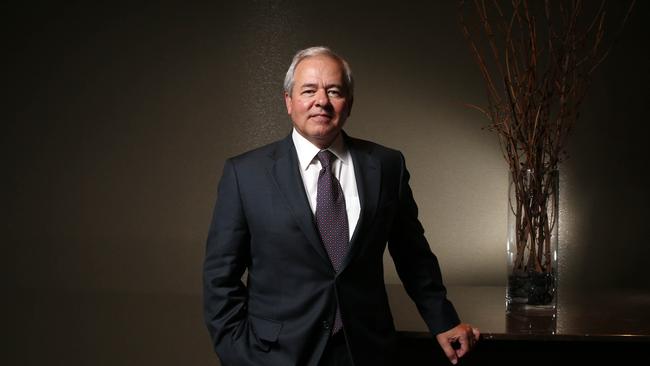United Malt tips volumes to return pre-pandemic levels as drinkers celebrate end of lockdowns
People returning to pubs and bars helped boost sales for the world’s fourth largest maltster but shipping delays and inflation impacted earnings.

United Malt Group, the world’s fourth biggest maltster, is buoyed by the growing thirst for craft beer and aged whisky as lockdowns ease and drinkers celebrate a return to their favourite pubs and bars, with sales volumes fast approaching levels before Covid-19.
The demand for craft beer in particular is booming which is beneficial to United Malt’s focus on premium barley used to make some of the world’s most popular craft beers while growing enthusiasm for 10-year and over aged whisky is driving distillers to the doors of its new whisky facility in Inverness, Scotland, which will soon bring on 57,000 tonnes of new capacity.
Meanwhile, higher international prices for barley combined with resurgent demand across all of its markets reflecting the reopening of drinking venues has poured cash into United Malt’s coffers.
United Malt, which was demerged from GrainCorp two years ago, has also pushed through price increases for new customers, as much as doubling prices to cope with the tight market for barley and inflated commodity prices, with plans for older contracts to also take on higher prices as they roll over.
However, these positive tailwinds were countered by a deterioration in the Canadian barley crop and disruption to supply chains that caused a blowout in shipping, freight and energy costs.
United Malt on Tuesday posted a 24 per cent slide in half-year net profit to $10.3m as revenue lifted 11 per cent to $651.6m for the six months to March 31.
The extra costs spurred by supply chain disruptions and a poor Canadian barley crop dented its earnings momentum and United Malt has slashed its interim dividend by 25 per cent.
Underlying earnings of $57m, down 5 per cent, was in line with earnings guidance provided to the market in late April and before costs of around $6m related to its ongoing technology upgrade.
United Malt’s flagship processing business lifted revenue by 10 per cent to $498m for the first half driven by increased sales volumes and higher barley prices.
Underlying earnings declined by 12 per cent to $41m, affected by the significant deterioration in the Canadian barley crop quality which reduced yields and increased production costs. The reduced Canadian crop also resulted in the company incurring additional logistics costs to import barley into Canadian processing plants from Denmark.
United Malt said the combined impact of additional barley required to address reduced quality, yield and the additional logistics costs for importing barley was $8m for the period. Export sales continue to be delayed with ongoing container freight disruptions.
The company declared an interim dividend of 1.5 cents per share, down from 2 cents for the same period last year, and payable on June 17.
United Malt chief executive Mark Palmquist said customer demand is returning as most of his markets reopened and Covid-19 restrictions are lifted, with craft beer and aged whisky throwing off strong growth.
“We are seeing sales volumes continue to recover and we are expecting full year sales volumes to exceed 2021 levels and approach pre-Covid (fiscal 2019) levels,” he said.
“Longer term, we remain very confident about the positive fundamentals of the industry. Beer remains a significant and growing beverage category while demand for craft beer and ancillary products continues to accelerate. Demand for distilling continues to grow with United Malt’s customers laying down spirits for 10-plus-years for aged whisky.
“We continue to put the necessary building blocks in place to take full advantage of these positive market fundamentals,” he said
Mr Palmquist said although new barley crops planted in Canada could help with supply the sector was still facing tight conditions due to the millions of tonnes of barley lost to the system from the war in Europe. Farmers in Australia were planting more wheat due to its higher price and taking up land that would have traditionally grown barley.
Across at United Malt’s other core business, warehouse and distribution, it continued to generate positive momentum as revenue increased by 13 per cent to $169m with the return of craft brewing demand as major markets reopened and the optimisation initiatives delivered improvements in revenue and underlying earnings.
Underlying EBITDA increased by 14 per cent to $21m.
Mr Palmquist was upbeat about its growing presence in whisky.
“In the UK, we remain focused on servicing the Scottish whisky market which requires quality malt to meet the long-term requirements of distillers to produce aged whisky. We continue to expect incremental EBITDA of approximately $18m on a full year run rate basis from our Scottish expansion project.
“The new facility in Inverness will provide an additional 57,000 tonnes of capacity to service the distilling market with a significant proportion of the new capacity underpinned by expanded contracts with customers.”
The site is expected to be producing commercial quality malt in the fourth quarter of calendar 2022.
United Malt confirmed its previous earnings guidance for fiscal 2022 with underlying EBITDA, before technology costs, expected to be in the range of $115m-140m.
In December high profile investor John Wylie emerged with a substantial stake in United Malt, with his Tanarra Capital buying a 5.44 per cent interest in the company.
Mr Palmquist said his talks with Mr Wylie since he arrived on the share register had been constructive.
“We know Tanarra from before the demerger that we had with GrainCorp, so John is a good shareholder and we are happy to have him on our register,” Mr Palmquist said.
Shares in United Malt ended down 1.5 per cent, at $3.96.



